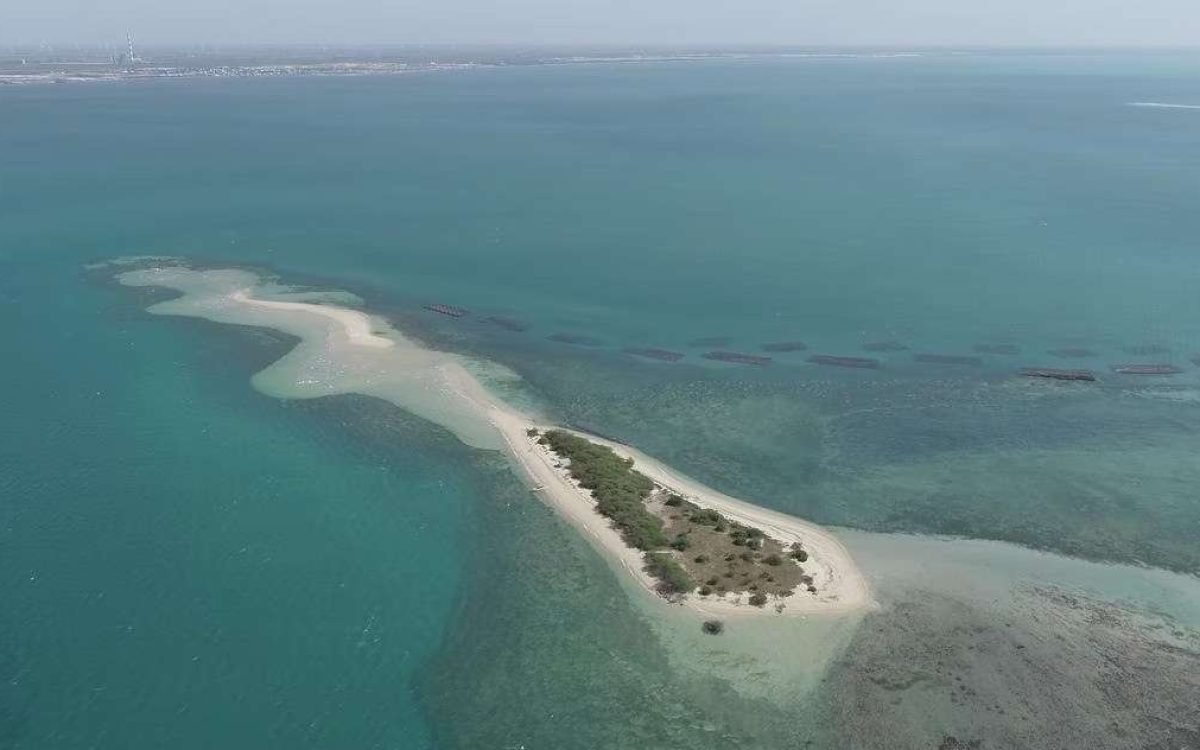Tamil Nadu’s Endeavor to Salvage Endangered Islands in the Gulf of Mannar
Introduction:
In a proactive move to preserve its natural heritage, Tamil Nadu has embarked on a mission to rescue its imperiled islands, exemplified by the successful restoration of Vaan Island. Now, the state government is doubling down on its efforts to revive Kariyachalli Island, underscoring its commitment to environmental conservation.
Threatened Ecosystem:
The Gulf of Mannar, designated as India’s inaugural marine biosphere, harbors a chain of 21 islands that face an existential threat due to coral mining and the adverse impacts of climate change, such as rising sea levels and coastal erosion.
Success Story:
The remarkable turnaround of Vaan Island serves as a beacon of hope, achieved through a collaborative effort that saw the deployment of over 10,000 artificial reef modules, effectively thwarting the island’s imminent submersion.
State’s Initiative:
Bolstered by the triumph at Vaan Island, Tamil Nadu has earmarked funds amounting to ₹50 crore for the restoration of Kariyachalli Island, signaling its proactive stance in safeguarding its natural assets.
Restoration Plan:
Under the ambit of the Tamil Nadu Coastal Restoration Mission, comprehensive plans have been laid out to initiate the restoration work on Kariyachalli Island, with a targeted timeline spanning the 2024-25 fiscal year.
Environmental Impact:
Studies conducted on the islands’ precarious state have sounded the alarm, predicting that without intervention, both Kariyachalli and Kasuwari Islands could succumb to the relentless forces of nature by 2035, necessitating urgent remedial action.
Global Collaboration:
Recognizing the magnitude of the challenge, Tamil Nadu has engaged in discussions with the World Bank to solicit support and expertise, paving the way for a collaborative endeavor to safeguard the islands’ ecological integrity.
Scientific Intervention:
The restoration strategy hinges on the deployment of specially designed artificial reef modules, meticulously crafted based on detailed bathymetric surveys and analysis of wave dynamics.
Deployment Process:
A mammoth undertaking, over 10,000 trapezoidal artificial reef modules, each weighing approximately 1.8 tonnes, have been painstakingly positioned to form a protective barrier around the vulnerable islands.
Ecological Impact:
Beyond mere protection, the artificial reefs serve as sanctuaries for a myriad of marine species, fostering biodiversity and aiding in the restoration of fragile ecosystems within the Gulf of Mannar.
Sustainable Solutions:
Tamil Nadu’s holistic approach underscores a commitment to sustainable conservation practices, blending scientific innovation with ecological stewardship to ensure the long-term viability of the region’s marine habitats.
Recognition and Awards:
Jagdish S. Bakan, Wildlife Warden of Gulf of Mannar Marine National Park, has been duly recognized for his exemplary contributions to biodiversity conservation, receiving prestigious accolades such as the UNESCO Michel Batisse Award and the UNEP Asia Environmental Enforcement Award in 2023.
Future Prospects:
With concerted efforts and international collaboration, Tamil Nadu aims to safeguard the Gulf of Mannar’s unique biodiversity hotspots, fostering resilience and sustainability in the face of looming environmental challenges.
Conclusion:
As Tamil Nadu forges ahead with its restoration endeavors, the state emerges as a trailblazer in environmental conservation, setting a commendable precedent for proactive stewardship and responsible management of precious natural resources.









